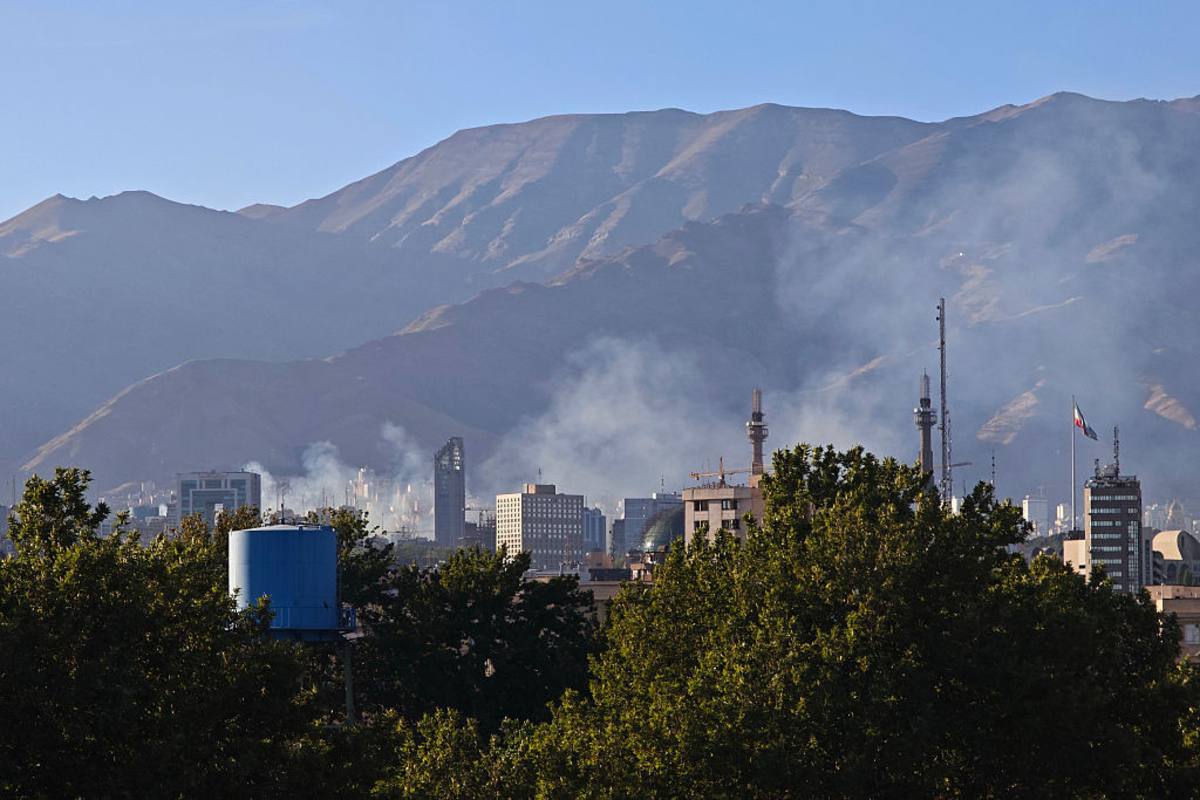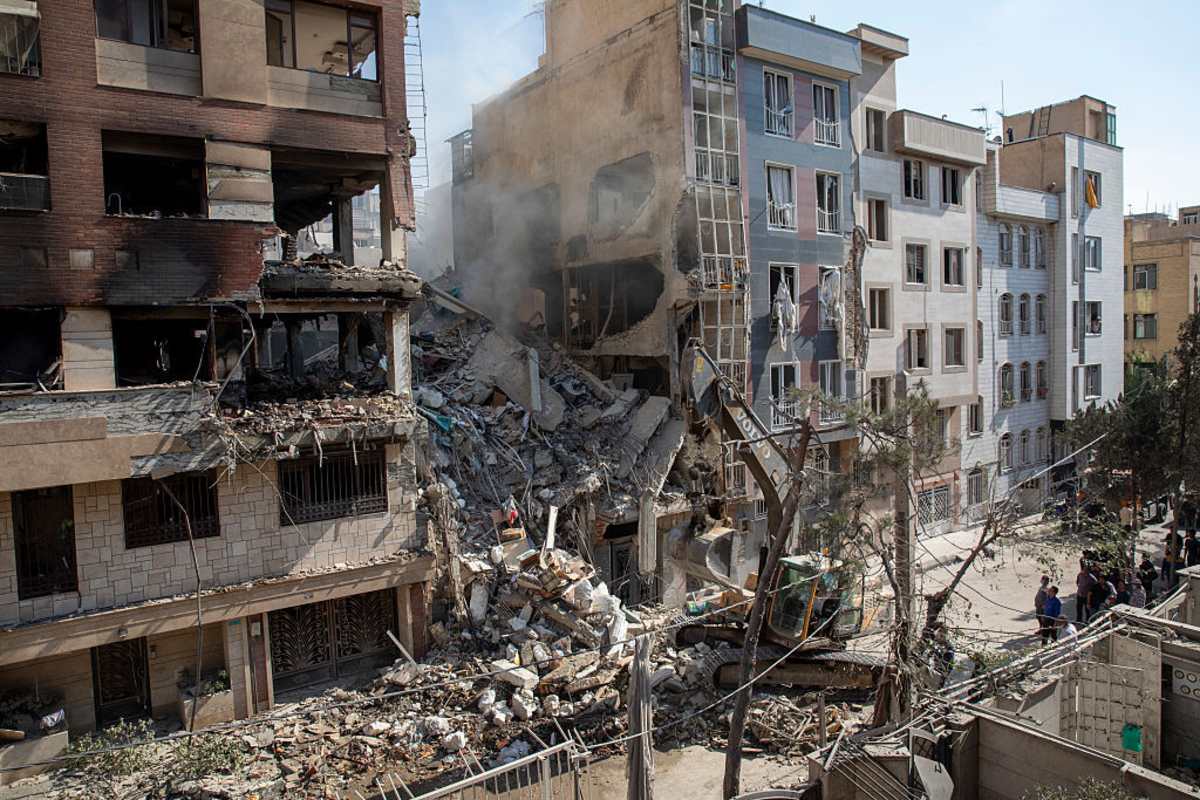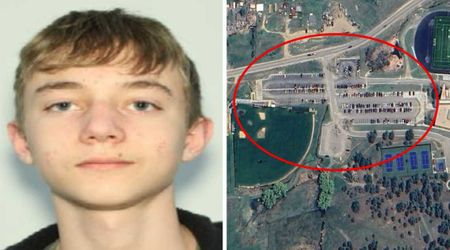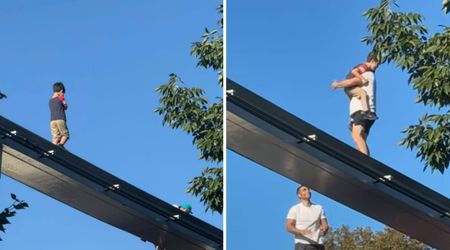Strong earthquake tremors near missile complex spark panic in Iran amid escalating conflict with Israel

TEHRAN, IRAN: A 5.2-magnitude earthquake struck northern Iran early Friday, June 20, near a sensitive military zone, adding further strain to an already tense geopolitical climate.
The earthquake struck the Semnan region in northern Iran, with its epicenter located 27 kilometers southwest of the city, as per NDTV reports.
The tremor came just as Iran and Israel remain locked in heightened conflict, with diplomatic clashes reaching the UN this week.
🚨🚨#BREAKING: Mag 5.1 earthquake strikes Iran near capital Tehran
— Steve Gruber (@stevegrubershow) June 20, 2025
The quake struck some 22 miles away from Iran's Semnan region at 9:19pm local time and was also felt in Tehran's Qom region.
Semnan is home to the Semnan Missile Complex operated by Iran's military as well as… pic.twitter.com/IxOjZ1uZUq
Earthquake strikes Iran’s missile complex amid concerns over regional stability
The earthquake occurred southwest of Semnan, approximately 35 kilometers from Tehran, around 7:49 UTC. It struck at a depth of just 10 kilometers — shallow enough to raise concern — especially given its proximity to Iran’s Semnan Space Center and Missile Complex, both operated by the country’s military.
Sorry FEARSINT bros..
— Tracer (@inteltracer) June 20, 2025
Although today's 5.2 magnitude earthquake in Northern Iran is the largest quake since 12/23/2024 (attached), Iran is littered with fault lines and the depth of 10km is pretty indicative of natural causes.
This isn't your nuclear test. pic.twitter.com/AJXnopZUnY
While the magnitude was moderate, experts note that the location and timing amplify its perceived threat.
Seismic activity in such zones often draws scrutiny due to the risk it poses to sensitive defense infrastructure, like missile storage or enrichment facilities. So far, there have been no official warnings or reports of damage to these sites.
No casualties as earthquake jolts Iran’s Semnan region
As of the latest updates, there have been no confirmed reports of fatalities or significant infrastructure damage. The Times of Israel reported that emergency assessments are ongoing but that the initial impact appears to be limited.
While the tremor shook buildings and caused brief panic in nearby towns, authorities have not issued evacuation orders or disaster declarations. Residents, however, remain alert given the region's volatile combination of military tension and geological instability.

Iran is one of the world’s most earthquake-prone countries, located on the Alpine-Himalayan seismic belt, a region of intense tectonic activity. The nation experiences approximately 2,100 earthquakes each year, with 15 to 16 registering magnitudes of 5.0 or higher.
The country’s geological vulnerability has historically led to severe destruction and high casualties. Friday’s quake, although moderate, serves as a reminder of Iran’s ongoing seismic risk—especially when layered atop its already heightened political climate.
Iran and Israel exchange more strikes as nuclear tensions escalate
Iran and Israel engaged in a new round of strikes early Saturday, June 21, intensifying an already volatile conflict rooted in fears over Tehran’s nuclear ambitions, as reported by The Guardian.
The renewed hostilities came after Iran declared it would not enter into nuclear negotiations while under threat, and Israel claimed its recent operations had pushed back Iran’s nuclear capabilities by “at least two or three years.”

At approximately 2:30 am, the Israeli military reported incoming ballistic missiles from Iran, prompting air raid sirens in central Israel, including Tel Aviv, and in parts of the Israeli-occupied West Bank. Explosions and visible missile interceptions lit up the skies over Tel Aviv, though no direct impacts or casualties were immediately confirmed. Israeli officials said five ballistic missiles were launched by Iran.
Simultaneously, Israel retaliated with strikes targeting missile storage and launch infrastructure inside Iran. Iranian media reported that one of the nation’s major nuclear facilities, located in Isfahan, was targeted. However, authorities stated there was no leakage of hazardous material. In Qom, an Israeli strike reportedly hit a building, killing a 16-year-old and injuring two others, according to local sources.

The conflict erupted last Friday when Israel launched a series of airstrikes on Iranian territory, declaring its aim to prevent Iran from developing nuclear weapons. Iran responded swiftly with a missile and drone barrage, sparking an ongoing cycle of retaliatory attacks between the two nations.










